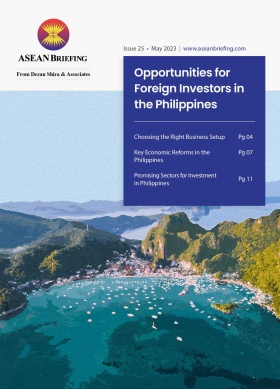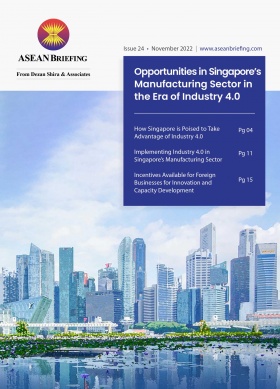Comparing Singapore Business Entities: Choosing the Right Structure for Your Venture
Foreign companies can set up a variety of business structures in Singapore for their investments. Establishing a subsidiary, branch office, or representative office (RO) is some of the most popular options. Investors need to assess their specific business needs before deciding on a corporate structure to operate from.
Private companies limited by shares
A private company limited by shares, also known as a private limited company, is the preferred structure among small and medium-sized (SME) foreign companies for setting up a local business presence in Singapore.
A private limited company can benefit from tax incentives available to local companies. It is also a separate legal entity from its directors, shareholders, and officers of the company; this means that the foreign holding company cannot be held for the liabilities of its subsidiary. In addition, the holding company’s liability is limited to the share capital subscribed in its subsidiary.
Branch offices
Foreign companies can establish branch offices to conduct any business activity that falls within the scope of the parent company.
The name of the branch office must be the same as the parent company and as a legal extension of the parent company. The parent company must bear ultimate legal responsibility for all liabilities.
Representative office
A representative office is a short-term, temporary arrangement with a limited purpose; however, it must be established for a maximum of three years, of which the RO status is subject to evaluation by Enterprise Singapore, the government agency under the Ministry of Trade and Industry, before the RO can be further renewed on an annual basis.
This setup is an ideal choice for foreign investors who are still researching their investment options before setting up a fully-fledged office in Singapore. Companies looking to set up an RO must have a sales turnover of at least US$250,000 and must be represented by staff from their own HQ or a Singaporean citizen.
ROs can be staffed by a maximum of five individuals, with the parent company bearing liability for the activities of the RO and responsible for financing its operations.
|
Comparison of Business Entities in Singapore |
|||
|
|
Private limited companies limited by shares |
Branch office |
Representative office |
|
Legal type |
|
Legal extension of a foreign holding company. |
Short-term, temporary arrangement with a limited purpose. |
|
Business activities |
· Business activities can be different from the parent company. · The company must obtain the relevant business licenses for its operations in Singapore. |
Business activities, must be the same as the parent company. |
The RO is confined to activities set out by Enterprise Singapore, which include: · Gathering of information on markets and potential clients. · Carrying out research to ascertain product/service information. · Developing trade contacts and manage product enquiries. · Participating in trade shows and exhibitions. · Gathering information on regulatory requirements for the set-up of a permanent entity. |
|
Criteria for eligibility |
|
|
· The parent company has been established for more than three years. · The parent company has incurred an annual sales turnover of more than US$250,000. · The foreign chief representative is from its headquarters; alternatively, the RO may appoint a Singapore citizen to fulfil the role of the chief representative.
|
|
Liabilities |
No liability by holding company of its subsidiary. Liability is limited to the share capital subscribed in the holding company’s subsidiary. |
Parent company bears ultimate legal responsibility for all liabilities and must be registered with ACRA. |
Parent company bears liability for the activities and is responsible for financing operations. |
|
Tax treatment |
Taxed at the flat corporate income tax rate of 17 percent. |
Taxed at the flat corporate income tax rate of 17 percent. |
Not applicable since a representative office generates no income. |
|
Can the entity benefit from local tax incentives? |
Yes |
No |
No |
|
Staff hiring |
Can hire local and foreign workers, with no restrictions. |
Can hire local and foreign workers, with no restrictions. |
· The RO can only hire more than five employees; and · A Singapore citizen must fulfil the role of Chief Representative. |
|
Annual filing |
Only the accounts of the private limited company must be filed |
The accounts of the parent company as well as the branch office must be filed |
Not required. |
|
Entity validity period |
The company is registered until it is closed. |
The company is registered until it is closed. |
The RO can be established for three years. Furthermore, during the three years, the RO must be renewed each year. |
|
Overview of advantages |
· Separate legal entity to the parent company. · Can undertake business activities that are different to the parent company. · Eligible for local business incentives. |
Branch office is subject to the laws of the parent company |
· No corporate income tax. · Fewer compliance requirements. · Enables the parent company to establish a presence in Singapore with minimal costs. |
|
Overview of disadvantages |
Must adhere to local government compliance |
Activities must be in line with that of the parent company; and Unable to benefit from local business incentives.
|
Unable to benefit from local business incentives. |
About Us
ASEAN Briefing is produced by Dezan Shira & Associates. The firm assists foreign investors throughout Asia and maintains offices throughout ASEAN, including in Singapore, Hanoi, Ho Chi Minh City, and Da Nang in Vietnam, in addition to Jakarta, in Indonesia. We also have partner firms in Malaysia, the Philippines, and Thailand as well as our practices in China and India. Please contact us at asean@dezshira.com or visit our website at www.dezshira.com.
- Previous Article Navigating Intellectual Property Rights in Indonesia: An Overview
- Next Article A Closer Look at Vietnam’s Anti-Money Laundering Law







